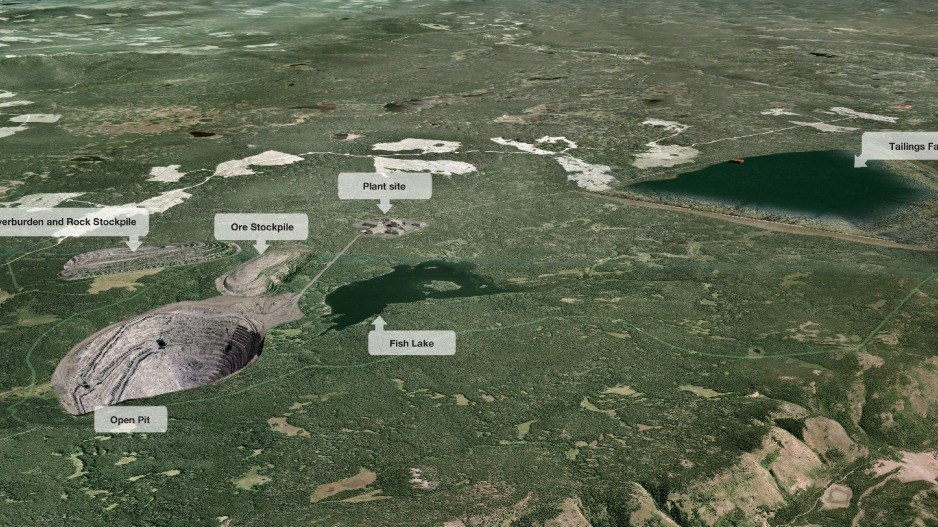The Tsilhqot'in First Nation have scored at least a temporary victory in an ongoing back-and-forth fight in the courts against the New Prosperity mine.
The BC Supreme Court has granted an injunction application by the Tsilhqot'in that will prevent Taseko Mines (TSX:TKO) from doing exploratory drilling - drilling that was just last month upheld by the BC Court of Appeal.
The Tsilhqot'in will now seek leave to appeal the appeal court decision to the Supreme Court of Canada.
"The injunction prohibits (Taseko) from carrying out the drilling program until the Supreme Court of Canada decides whether to hear an appeal of British Columbia's decision to approve the drilling program," the Tsilhqot'in said in a press release.
The Tsilhqot'in have been in a pitched battled with Taseko for years over the New Prosperity mine.
The BC government issued an environmental certificate for the proposed copper mine, but the federal government, through the Canadian Environmental Assessment Agency (CEAA), refused to issue a certificate not once, but twice.
Taseko is still waiting for a decision on its challenge to that decision through the Federal Court.
It sought two judicial reviews, saying the federal government breached principles of administrative fairness, and that it relied on faulty information supplied by the Natural Resources Canada on the potential for a tailings pond above Fish Lake to seep.
Meanwhile, Taseko said it was obliged under the conditions of the provincial certificate to have the work on the mine substantially started before a 2020 expiration date. Some of the work that has to occur is geotechnical work on a proposed tailings pond.
"As part of the Mines Act permitting process, we would be required to gather more information about the performance characteristics of the bottom of that tailings pond," Taseko spokesperson Brian Battison told Business in Vancouver. "That's what we're planning to do. It's drilling holes, and it's digging test pits."
Because there is a sunset clause in the original certificate issued by the province, Taseko applied for a drilling permit from the province, and received one, despite the fact the CEAA has denied the project an environmental certificate.
The Tsilhqot'in challenged that decision, but the BC Supreme Court upheld the provincial government's decision to issue a notice of work allowing for the geotechnical work to take place.
The Tsilhqot'in appealed the lower court decision, but at the beginning of March, the BC Court of Appeal upheld the lower court ruling.
And now the BC Supreme Court has granted an injunction against the drilling permit upheld by the Appeal Court, pending the Tsilhqot'in's application to the Supreme Court of Canada.
In 2014, the Tsilhqot'in won a landmark legal victory, when the Supreme Court of Canada confirmed Tsilhqot'in title to some of the territory claimed by the First Nation as unceded territory. It also confirmed tradition aboriginal rights to hunt, trap and catch wild horses in a wider area beyond the title land.
Earlier court rulings have found that the Tsilhqot'in do have aboriginal rights, even if not title, in the area where the mine is proposed. The question for the Supreme Court of Canada may be whether the proposed New Prosperity mine would infringe those rights.
While the saga plays out in the courts, Battison said Taseko can, and will, apply to the provincial government for an extension to its original certificate.
"Our position remains unaltered," Battison said. "We will see this through to the end. The New Prosperity deposit is just far too important for British Columbia to ever give up on."
The Tsilhqot'in's position also remains unaltered.
"It is still unfortunate that we, collectively, spend time and resources on exploration for a mine proposal that cannot proceed," Russell Myers Ross, vice-chairman of Tilhqot'in National Government, said in a news release.

.png;w=120;h=80;mode=crop)

